#u saint!!!
Explore tagged Tumblr posts
Text

Lesson 54 SUMMARY.
#don't touch me!!!!#go experiment on some other human u!!!!#how could you Luci!?#where is solomon when i need him#SIMEON#u saint!!!#lol#simeon for the win#best boi#obey me nightbringer#obey me#obey me boys#obey me 54 lesson#obey me simeon#obey me lucifer#obey me diavolo#obey me mephistopheles#obey me mc#fanart
377 notes
·
View notes
Text

[id: a digital drawing of Martin from TMA during mag 170. He is a fat white man with short, light-coloured hair and round glasses. He is shown from behind, facing a wall of "mirrors" which show various images: Martin with Peter's hand on his shoulder, Martin watching a silhouette of Jon as he leaves, Martin as a young boy, a hand carrying a steaming cup of tea, Martin's father, and in the centre, a mirror reflecting him in the present, but with a large crack obscuring his face. The image is rendered in cool browns with highlights of desaturated green-blue. end id.]
Finally able to post my piece for the Martin fanzine!! Everybody who worked on this zine is so talented, please check it out if you haven't already 🩵
#tma#martin blackwood#mag 170#my art#im so glad to finally share this it was really fun!!!#thank u to beloved saint for the id!!
2K notes
·
View notes
Photo

The Changing of the Seasons By Saint Hildegard
5K notes
·
View notes
Photo
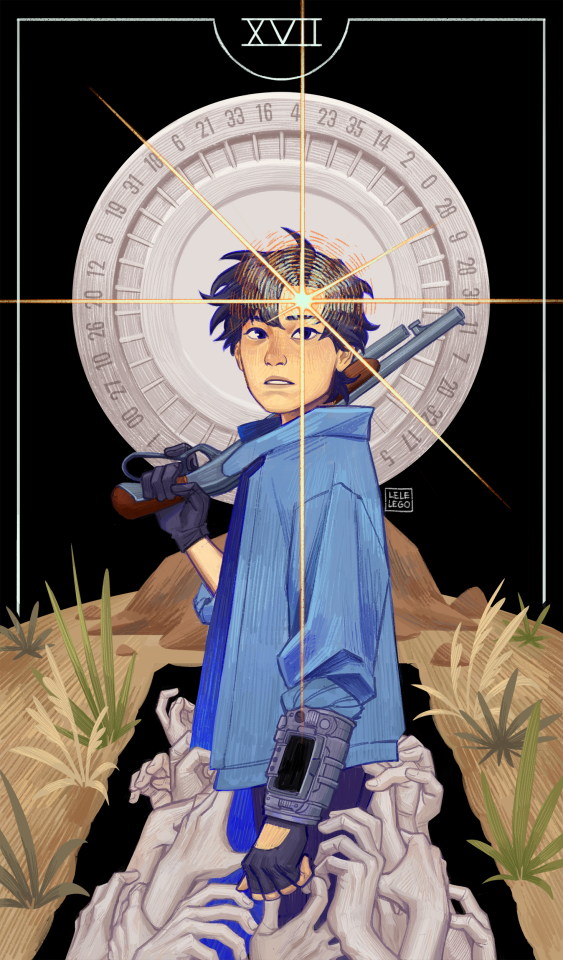
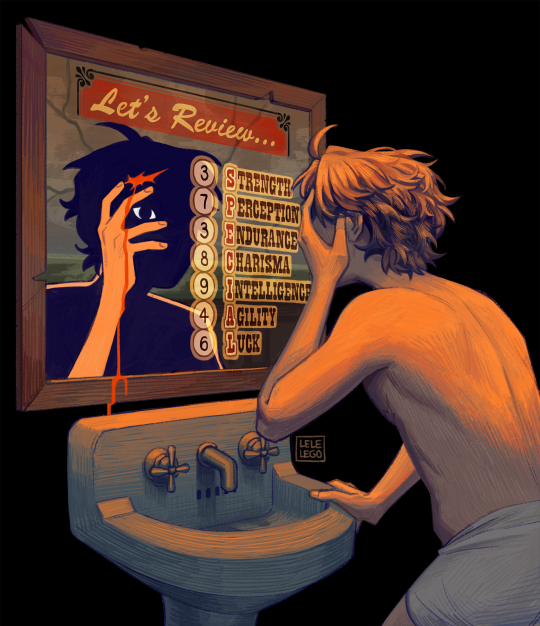
ain’t that a kick in the head
#fallout#fallout new vegas#fnv#courier six#eyy here's my courier oc! hes eli hes early-mid 20s and hes ready to stumble around and get offed bc of that 3 END#i'm thinking about preparing an info sheet for him too but hhhhh. saints row hyperfixation.............#also no offense these go pretty hard thank u <3#doodly thingy#oc: eli#fallout tag
27K notes
·
View notes
Text

"Give me your hands, let me touch you… and you, and you, and you too!"
#when clara enters the cathedral on day 5... gave me chills ngl..#If u actually know what human blood vessels are supposed to look like im so fucking sorry#here comes the holy girl the saint!#clara pathologic#pathologic#clara saburova#pathologic classic hd#мор утопия#color experiment that i let run its course#shriikadraws
3K notes
·
View notes
Text


just goofing around!
#saints for girls#my art#these r new publicly but theyve been on the 'treon a whilE#drawing yr oc in whatever outfits u want. rite of passage
813 notes
·
View notes
Text

SAINT LAURENT PRE-FALL 2024
#fashion#saint laurent#pre fall 2024#fashion photography#black and white#monochrome#fashion details#anthony vaccarello#u#EDIT
849 notes
·
View notes
Text
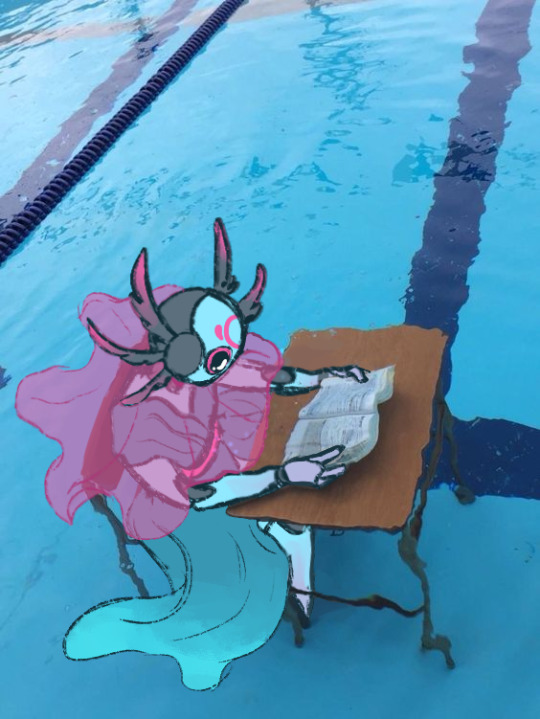
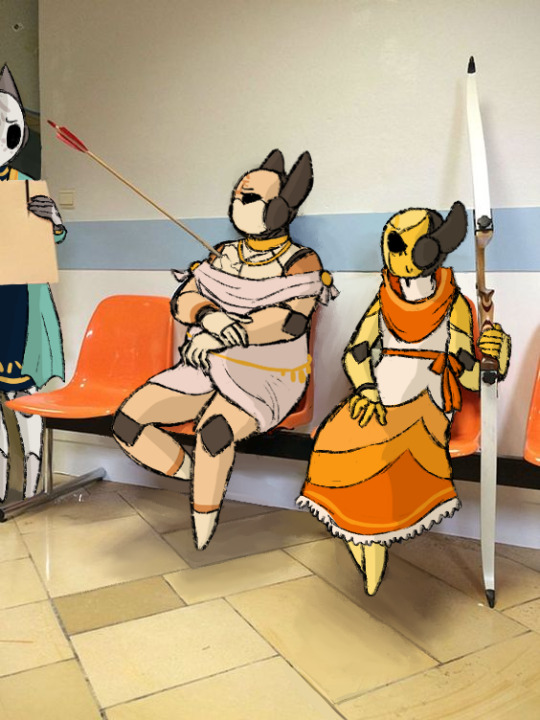
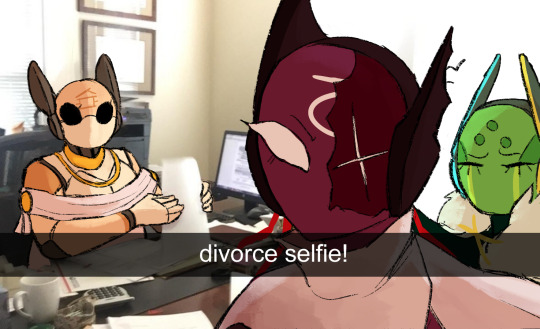

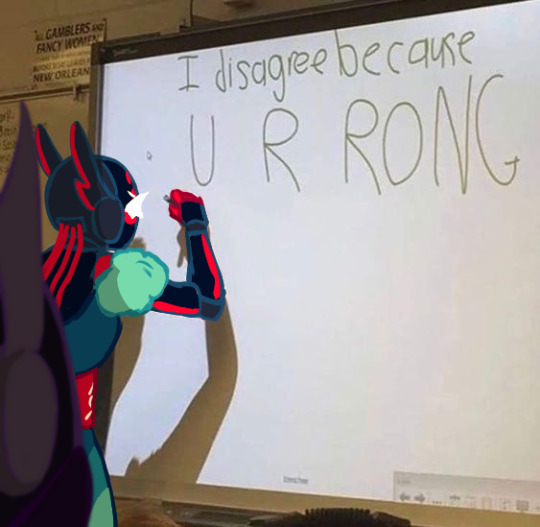
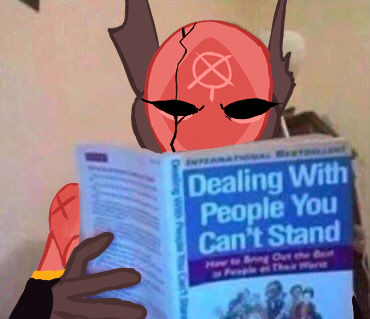
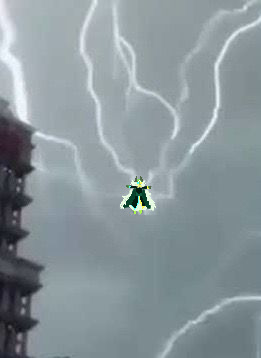
world's most normal rain world post
#trashy art#rain world#rain world downpour#rw#rivulet#survivor#gourmand#monk#artificer#saint#spearmaster#inv#enot#hunter#shitpost#scugerators au#iterators#slugcats#rw artisaint#DOES THIS COUNT LMAO#wouldn't quite matter anyway bc ships aren't canon to this au JSJSJ#nightcat#I forgot to tag u pookie I'm so sorry#rw watcher
2K notes
·
View notes
Text

I think it's fitting to post this with the release of Echoes ???
#my art#mintleflower#simon fynch#digital art#destiny 2#destiny#d2#the final shape#destiny the final shape#osiris#saint-14#uhhhh happy pride??????#idk what to tell u
647 notes
·
View notes
Text
‘wow dr minyard how are you so calm and patient even with the insane ones?’
‘i’ve had practice.’
#impressive amount of skill juggling premed with andrew and a murder case and neil fucking josten and kevin mf day and the mafia and#this man has the patience of a fucking saint#patients will tell him the most unhinged disturbing questionable things and he’d go damn u should my brother’s man#stitched up a shot man in the middle of the hospital waiting are because it was urgent and he’d done it twice before w neil#handled alcoholism with such professionalism you’d think he worked in a rehab center (he helped kevin w his addiction)#i’d love to see the cases he can handle with unnatural ease just because of the insane fucking college experience he acquired#i’d write something surrounding this but i can’t write and i don’t have enough med knowledge#i love aaron minyard btw in case you couldn’t tell#aaron minyard#the foxhole court#all for the game#aftg#neil josten#kevin day#tfc#andrew minyard#twinyards#blue's bs
783 notes
·
View notes
Photo
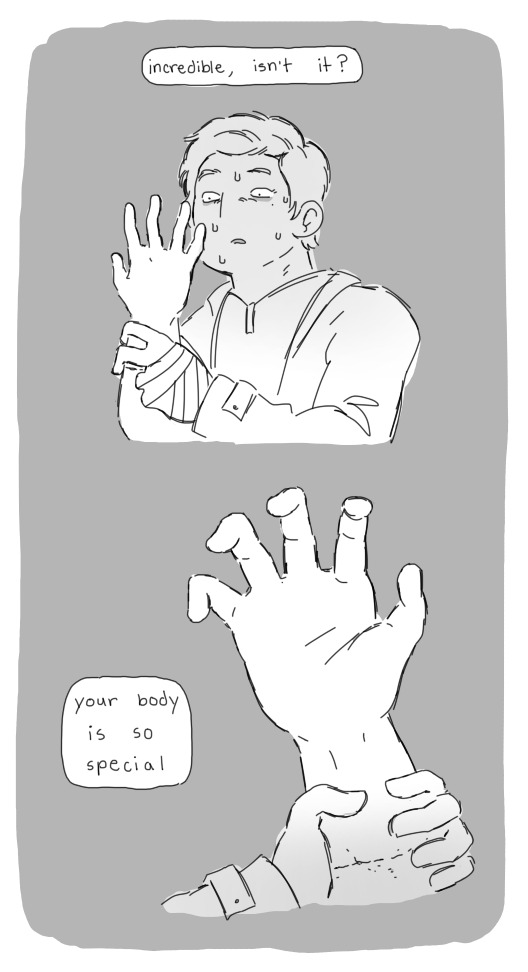

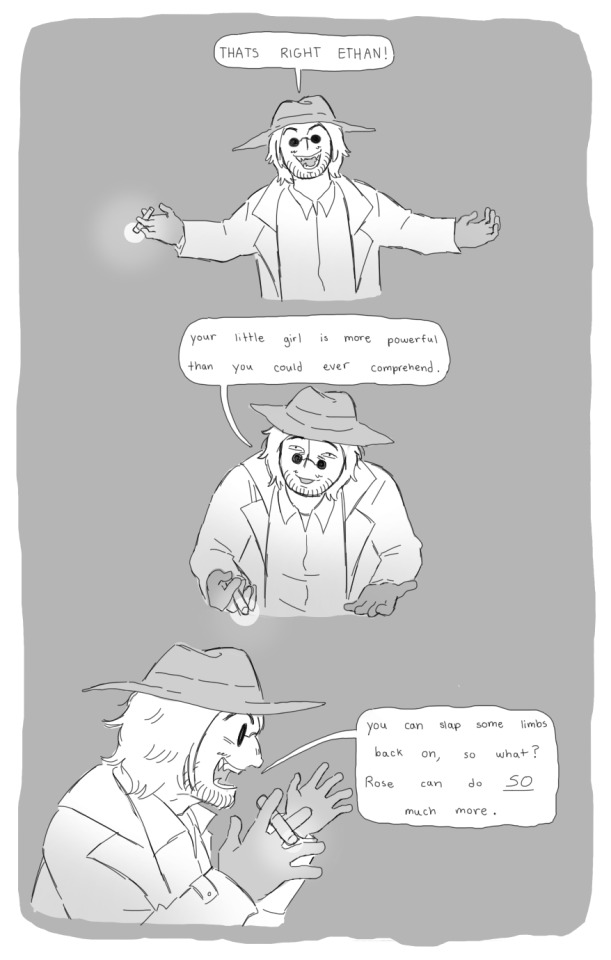


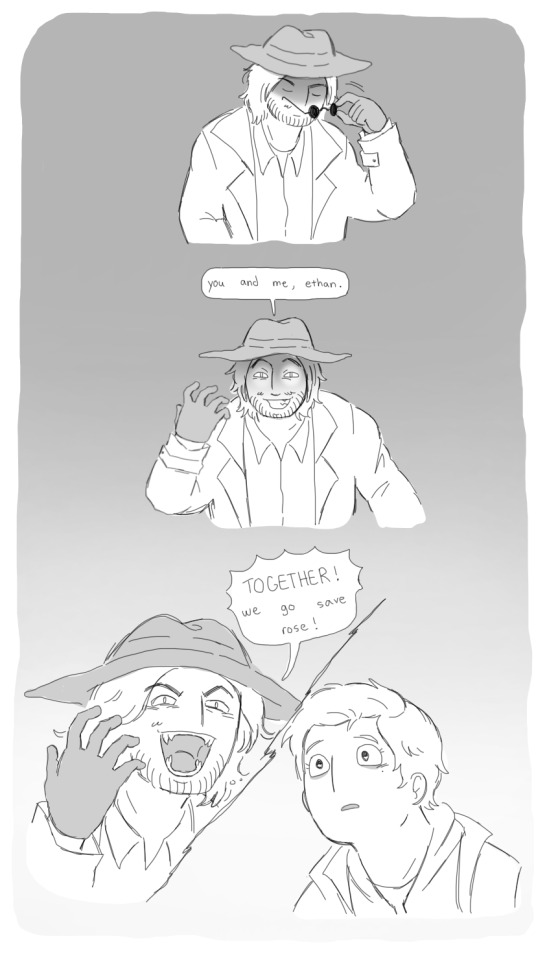

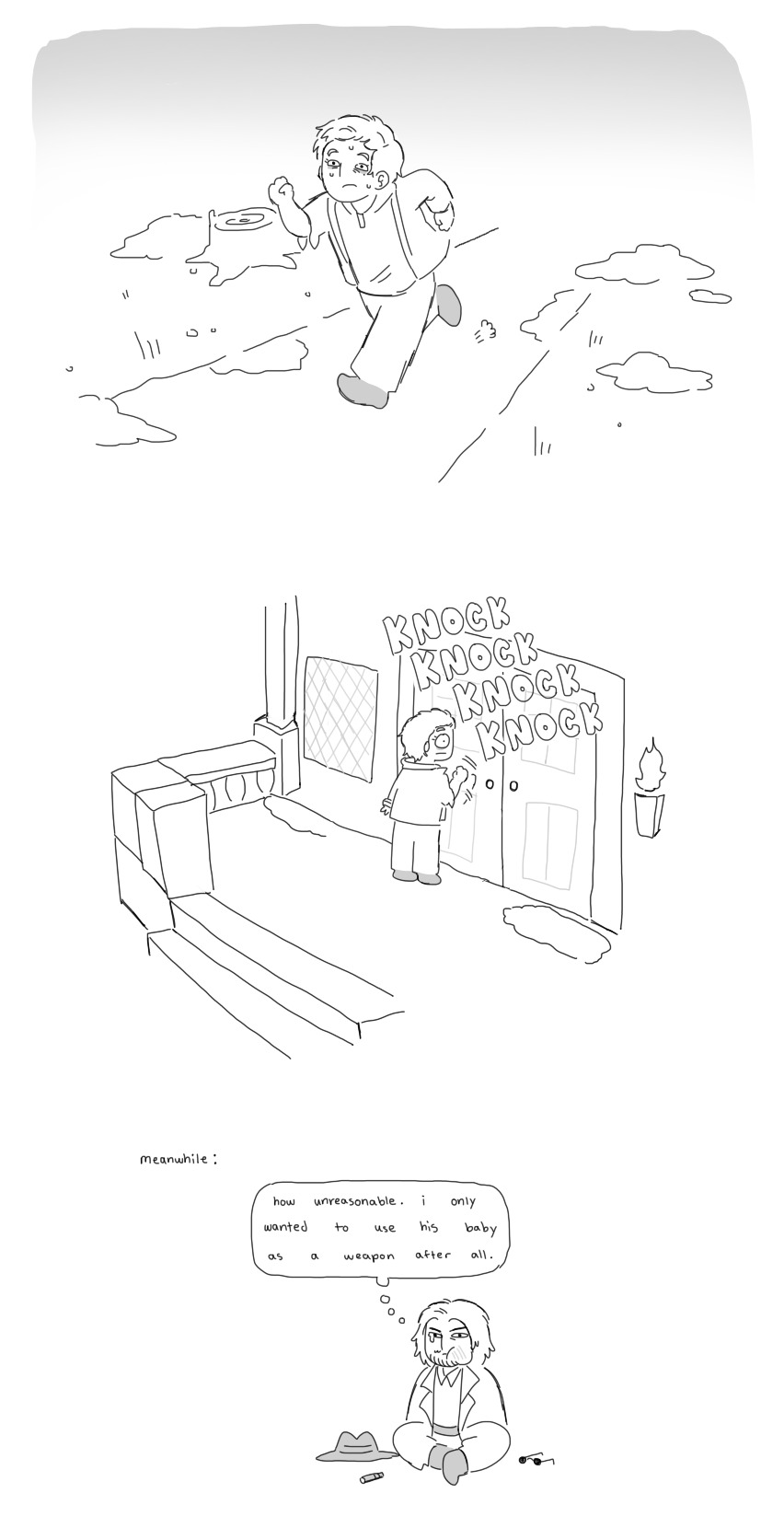
his daughter is not a weapon!
#ethan winters#karl heisenberg#resident evil 8#re8#resident evil village#rebhfun#resident evil#resident evil fanart#miss D and her man thing#i hope to god this does not start discourse#be fr#u really think ethan is in the wrong for turning down his deal#turning down a deal from a man whos first impression was stabbing him and throwing him into a death pit#'yeah but he stabbed him because ____'#BRO HE STABBED HIM#IT DOES NOT MATTER#karl is not a good person#just because he was willing to ally with ethan does not make him a saint#he wanted to use ethans daughter#why would u tell the man who has been fighting his way through ur family to save his baby daughter#that u want to use said baby daughter#it was a bad deal please dont try to twist it to make it seem like ethans stupid for turning it down#karl is stupid for thinking hed accept and then refusing to elaborate and throwing him into his jet engine hole#this doesnt mean i dont like karl#im just tired of people tyring to make karl look better by making ethan look worse#cmon man#this concludes another crumb essay in the tags
4K notes
·
View notes
Text
The Committee of Public Safety being a totally healthy work environment with no issues whatsoever compilation
First, some statistics:
Leaving in the middle of a session due to fighting: Collot (1 time), Robespierre (3 times), Saint-Just (4 times), Lindet (1 time)
Starting to cry during a session: Carnot (1 time), Robespierre (1 time)
Threatening your co-workers: Robespierre (2 times), Saint-Just (2 times, one of them a death threat), Couthon (1 time)
Calling your co-workers traitors/scroundrels/ counter-revolutionaries/aristocrats/conspirators/foreign agents: Billaud (1 time), Saint-Just (3 times), Robespierre (5 times), Collot (2 times), Barère (1 time)
Accusing your co-workers of aspiring towards dictatorship: Carnot, Billaud, Barère, Collot, Lindet (1 time)
Accusing your co-workers of wishing to destroy patriots: Robespierre, Collot (1 time)
Using physical violence against your co-workers: Collot (2 times?)
Defending your co-worker against another co-worker in a way that doesn’t at all make it seem like you’re into him: Saint-Just (3 times) Barère (1 time)
Saint-Just had such indifference that, about this time (return from Fleurus), he came one evening to propose to the committee a strange means of promptly ending the struggle of the revolution against the suspected and imprisoned nobles. These were his words: ”For a thousand years the nobility have been oppressing the French nation with exactions and feudal vexations of every kind, feudalism and nobihty exist no longer, if you want to repair all the frontier roads for the passage of the artillery, convoys, and transports of our army, order the imprisoned nobles to go to work daily and mend the highways.” […] When Saint-Just had finished there was a movement of silent indignation amongst us all, succeeded by a unanimous demand for the order of the day. I thought I ought to stipulate for the national character by saying to Samt-Just and the committee that we should be opposed to such a kind of punishment for prisoners even if the law pronounced it, that the nobility could be abolished by wise laws, but that the nobles always preserved in the mass of the people a rank, a distinction due to education, which prevented us from acting at Paris as Manus did at Rome. ”Ah,” exclaimed Samt-Just, ��Marius was more politic and a greater statesman than you will ever be. I wished to try the strength, the temperament, and the opinion of the Committee of Pubhc Safety. You are not fit to combat nobility, since you cannot destroy it, it will devour the Revolution and the revolutionists. I retire from the committee.” He quickly withdrew, and set out for the army, until the moment when he thought himself capable of executing vaster projects with Robespierre, Couthon, and Lebas, his associates. Memoirs of Bertrand Barère, volume 2, page 139-140.
It is the inherent vice of bad laws, and, above all, of penal laws devoid of motive, which attack a great number of innocent people, to nullify themselves. Saint-Just did not understand that. He attacked me, and accused me of having put under requisition the relatives of several emigrants whilst the law punished them in their property. The committee appeared struck by this accusation, and asked him to explain himself and name some of the relations. He named several, but they were all unknown to us. He afterwards named Mademoiselle d’Avisard, of Toulouse, whose father was abroad. Here I replied that the fate of this innocent girl, who was but sixteen years of age, and obliged by the terrible laws against emigrants to subsist at Paris by manual labour, for she was then engaged in making gaiters for our soldiers, was in the highest degree worthy of compassion and interest. […] The Committee of Public Safety thought this explanation sufficient. It saw that it was only a wicked recrimination by Saint-Just, supported by the presence of Robespierre. Memoirs Of Bertrand Barère, volume 2, page 147-148.
Robespierre murmured a lot about the forms that we had established in Lyon for the execution of decrees: he constantly repeated that there was no reason to judge the guilty when they are outlawed. He exclaimed that we had let the families of the condemned go free; and when the commission sent the Convention and the committee the list of its judgments, he was not in control of his anger as he cast his eyes on the column where the names of the citizens who had been acquitted were written. Unable to change anything in the forms of judgment, regulated according to the decrees and approved by the committee, he imagined another system; he questioned whether the patriots of Commune-Affranchie were not vexed and under oppression. They were, he said, because the property of the condemned being specially intended, by article IV of the decree of July 12, to become their patrimony, we had greatly reduced their claims, not only by not judging only a quarter of the number of conspirators identified by Dubois-Crancé on 23 Vendémiare, or designated by previous decrees, but also by establishing a commission which appeared willing to acquit two thirds, as it happened. Through these declamations Robespierre wanted to entertain the patriots of whom he spoke, with the most violent ideas, to throw into their minds a framework of extraordinary measures, and to put them in opposition with the representatives of the people and their closest cooperators: he made them understand that they could count on him, he emboldened them to form all kinds of obstacles, to only follow his indications which he presented as being the intentions of the Committee of Public Safety. Défense de J-M. Collot, répresentant du peuple. Éclaircissemens nécessaires sur ce qui s’est passé à Lyon (alors Commune-Affranchie), l’année dernière; pour faire suite aux rapports des Répresentants du peuple, envoyés vers cette commune, avant, pendant et après le siège (1794)
Billaud Varennes: […] The first time I denounced Danton to the committee, Robespierre rose like a madman and declared that he saw my intentions, that I wanted to lose the best patriots. Billaud-Varennes accuses Robespierre during the session of 9 Thermidor
Why should I not say that [the dantonist purge] was a meditated assassination, prepared for a long time, when two days after this session where the crime was taking place (March 30 1794), the representative Vadier told me that Saint-Just, through his stubbornness, had almost caused the downfall of the members of the two committees, because he had wanted the accused be present when he read the report at the National Convention; and such was his obstinacy that, seeing our formal opposition, he threw his hat into the fire in rage, and left us there. Robespierre was also of this opinion; he believed that by having these deputies arrested beforehand, this approach would sooner or later be reprehensible; but, as fear was an irresistible argument with him, I used this weapon to fight him: You can take the chance of being guillotined, if that is what you want; For my part, I want to avoid this danger by having them arrested immediately, because we must not have any illusions about the course we must take; everything is reduced to these bits: If we do not have them guillotined, we will be that ourselves. À Maximilien Robespierre aux enfers (1794) by Taschereau de Fargues and Paul-Auguste-Jacques.
In the beginning of floréal (somewhere between April 20 and 30) during an evening session (at the Committee of Public Safety), a brusque fight erupted between Saint-Just and Carnot, on the subject of the administration of portable weapons, of which it wasn’t Carnot, but Prieur de la Côte-d’Or, who was in charge. Saint-Just put big interest in the brother-in-law of Sijas, Luxembourg workshop accounting officer, that one thought had been oppressed and threatened with arbitrary arrest, because he had experienced some difficulties for the purpose of his service with the weapon administration. In this quarrel caused unexpectedly by Saint-Just, one saw clearly his goal, which was to attack the members of the committee who occupied themselves with arms, and to lose their cooperators. He also tried to include our colleague Prieur in the inculpation, by accusing him of wanting to lose and imprison this agent. But Prieur denied these malicious claims so well, that Saint-Just didn’t dare to insist on it more. Instead, he turned again towards Carnot, whom he attacked with cruelty; several members of the Committee of General Security assisted. Niou was present for this scandalous scene: dismayed, he retired and feared to accept a pouder mission, a mission that could become, he said, a subject of accusation, since the patriots were busy destroying themselves in this way. We undoubtedly complained about this indecent attack, but was it necessary, at a time when there was not a grain of powder manufactured in Paris, to proclaim a division within the Committee of Public Safety, rather than to make known this fatal secret? In the midst of the most vague indictments and the most atrocious expressions uttered by Saint-Just, Carnot was obliged to repel them by treating him and his friends as aspiring to dictatorship and successively attacking all patriots to remain alone and gain supreme power with his supporters. It was then that Saint-Just showed an excessive fury; he cried out that the Republic was lost if the men in charge of defending it were treated like dictators; that yesterday he saw the project to attack him but that he defended himself.
”It’s you,” he added, ”who is allied with the enemies of the patriots. And understand that I only need a few lines to write for an act of accusation and have you guillotined in two days.” ”I invite you, said Carnot with the firmness that only appartient to virtue: I provoke all your severity against me, I do not fear you, you are ridiculous dictators.” The other members of the Committee insisted in vain several times to extinguish this ferment of disorder in the committee, to remind Saint-Just of the fairer ideas of his colleague and of more decency in the committee; they wanted to call people back to public affairs, but everything was useless: Saint-Just went out as if enraged, flying into a rage and threatening his colleagues. Saint-Just probably had nothing more urgent than to go and warn Robespierre the next day of the scene that had just happened, because we saw them return together the next day to the committee, around one o'clock: barely had they entered when Saint-Just, taking Robespierre by the hand, addressed Carnot saying:
”Well, here you have my friends, here are the ones you attacked yesterday!”
Robespierre tried to speak of the respective wrongs with a very hypocritical tone: Saint-Just wanted to speak again and excite his colleagues to take his side. The coldness which reigned in this session, disheartened them, and they left the committee very early and in a good mood. It was at this time that the division became pronounced in a very noticeable manner, and soon after we saw it claimed in the English papers that the Committee of Public Safety was divided. For some time now we had been distrusting each other, we were observing each other, we were no longer deliberating with them with this abandonment of trust. Until then Robespierre had done little; he constantly brought us his concerns, his suspicions, his shady expressions and his political bile; he only concerned himself with personal measures; he only drafted arrest warrants, he only dealt with factions, newspapers, the revolutionary tribunal. Nothing about the Government, nothing about the war, never having either views to propose or a report to make, he spent his time destroying our courage, despairing of the salvation of the country and speaking of its slanderers and its assassins; his favorite expressions were, everything is lost, there are no more resources. I no longer see anyone to save it, he always cried. When news of victory were brought by a courier, he spoke of upcoming betrayals, he tarnished our joy or attacked the representatives of the people near the victorious army. The more triumphant the Northern army was, the more strongly he denounced Richard and Choudieu; when the troops besieged Ypres, a stronghold and the key to West Flanders, a capture which, according to the decrees of the committee, was to open and ensure the campaign; Robespierre shouted against the representatives of the People near this army and had complaints written that the troops had not taken Ostend sooner. He seemed to us to be pursued by victories as well as by furies, and he often reproached the committee's rapporteur for the length and exaltation of his reports on the triumphs of the armies. Réponse des membres des deux anciens Comités de salut public et de sûreté générale (Barère, Collot, Billaud, Vadier), aux imputations renouvellées contre eux, par Laurent Lecointre et declarées calomnieuses par décret du 13 fructidor dernier; à la Convention Nationale (1795), page 103-105.
Robespierre, supported by the Jacobins, was the most influential member of the Committees without being the most wicked. His supporters were, however, in the minority; the plan to adjourn the sessions of the Convention had not obtained theor approval. One thought it necessary to oppose Robespierre with the masculine structure of Collot d’Herbois. A quarrel caused by the proposal of a proscription list to which Robespierre was precisely opposed (it involved the arrest of 14 deputies and citizens); this list, put up for discussion by the majority, passed to each member who added names to it, when it reached Robespierre, it had 32 deputies on it. Robespierre said: “I see five or six deputies unworthy of the character with which they are invested: it will be easy to induce them to resign: but I will lend neither my vote nor my signature to the revenge that you want to exercise.” Two friends of Robespierre were of his opinion: heads became heated, quarrels ensued: Robespierre was reminded of the fact he had voted against the Danton faction. The three opponents were treated as moderates. Robespierre, getting up angrily, said to them: “You are killing the Republic, you are the faithful agents of the foreigner who fears the system of moderation that we should adopt.” The session became so stormy that Collot used acts of violence against Robespierre. He threw himself at him and seized him by the flanks. He was about to throw Robespierre through the window when the latter's friends rescued him. Robespierre then declared that he was leaving the committee, that he could not honorably sit with executioners, that he would report this to the Convention. One saw the danger of publicizing this scene, blamed Collot's patriotic anger, and begged Robespierre, after having torn up the disastrous list, not to give the enemies of the Republic new means of attacking it. Robespierre seemed to calm down, but when Collot approached him to embrace him he refused and despite being urged not to he left. Mémoires de Barras, membre du Directoire (1895) page 349-350. In a footnote, there is to read: This argument between Robespierre and Collot is recounted in more detail in another autobiographic note by Barras: Robespierre having opposed a new measure of proscription, saying: “You are decimating the National Convention, you are arresting citizens whose republican energy you fear,” the boor Collot d'Herbois threw himself at him and, having seized him by the flanks, he was about to throw Robespierre through the window when the latter's friends freed him. This scene was followed by explanations. Robespierre observed that he could no longer sit with executioners, that he was withdrawing and that he would report to the Convention. The Committee which predicted his fall then opposed Robespierre's exit. The proscription list was torn up in his presence. The hypocrite Carnot and the honeyed Couthon told him that Collot's angry outburst was disavowed by the Committee, that the publicity of what had just happened would ruin the Government Committees and the Republic. He was implored to make the sacrifice of all resentment, and that this proof of patriotism was expected of him. Collot furiously addressed the two mediators, complained about the weakness of his colleagues and left the session. Robespierre, very affected, alternately observed his adversaries. He said to them as he left: “You would have made me look crazy if the abortive plan to throw me through the window had taken place. I see here beings more atrocious than the one who tried to execute that plan. He left ashamed of having accepted this assassination.” Robespierre withdrew and did not appear again for two months at the Committee.
At a time when the Convention was already in a high state of alarm [Robespierre] had circulated a list of five or six deputies. It was rumored that Robespierre intended to have them arrested as a little treat to himself, alleging their immortality as the motive of this proposed act of severity. Robespierre, informed of what was being imputed to him, asserted that such an idea was foreign to him, and, desirous of hurling it back at its authors, he maintained that it had originated with the majority of the committee, which, he alleged, had pushed its cruelty so far as to seek to include 32 deputies in its latest proscription-list. In vain did those who spoke in defence of Robespierre’s innocence of the idea and his humanity protest that it was he who had opposed this more than rigorous measure, that he had torn up the list with his own hands, and apostrophizing the Committee, had said: ”You are seeking to still further decimate the Convention; I will not give my support to such action.” Robespierre had indeed spoken these words just as, making an attempt to leave the committee, he had opened the door with the intention of being heard by the deputies and a large number of citizens who, attracted by the noise of a quarrel in the bosom of the committee, were waiting in the antechamber for the purpose of gratifying their curiosity thus aroused. Collot d’Herbois, furious at such hypocrisy, had sprung after Robespierre, seized him by his coat, and, dragging him towards him in order to bring him back into the room, exclaimed in his resounding voice, which, the door remaining ajar, was heard by all, both the committee and the people outside: ”Robespierre is an infamous scroundrel, a hypocrite; he seeks to impute us that of which he alone is capable. We love all our colleagues; we carry all patriots in our hearts. There stands the man who seeks to butcher them one and all!” Thus vociferating, Collot d’Herbois still remained his hold on Robespierre’s coat-collar. As I had at that very moment left the Convention on my way to the committee, I became a chance spectator of this fearful scene, whose violence was still not the greatest crime in my eyes. Behind it stood revealed the plot of premeditated vengeance, far worse than a mere outburst of anger. I was among those who compelled Collot d’Herbois to release his hold on Robespierre, who thereupon declared that he could no longer sit with his enemies, styling them a party of septemvirs, whom he would unmask and fight in the body of the Convention. He then took his departure, in spite of the entreaties of the entreaties of the committee, which, having been unable to conquer, sought to retain him in its midst. ”Let him go his way,” I said to those surrounding him. All my interest in him lay in the fact that I did not wish to see him strangled on the spot by a stronger man, and one perhaps as wicked as himself. I followed him for a short distance in order to see him safely home; he was trembling as he walked alone. Memoirs of Barras, Member of the Directorate (1895), volume 1, page 196-198. A variation of the anecdote found in the French memoirs?
Lindet has recounted that Collot d'Herbois had thrown himself on Robespierre and that he, helped by Carnot and Prieur de la Côte-d'Or, had to separate them. Councilor Carnot affirms that one day his brother threw a writing case at Robespierre’s head. Le Grand Carnot (1952) by Marcel Reinhard, volume 2, page 145. Reinhard cites ”family archives” as the source for this anecdote. Thank you for sharing @aedesluminis !
On 19 Prairial (June 7 1794), I was in the council chamber with Dumas and several jurors. I heard the president speak of a new law which was being prepared and which was to reduce the number of jurors to seven and nine per sitting. That evening I went to the Committee of Public Safety. There I found Robespierre, Billaud, Collot, Barère and Carnot. I told them that the Tribunal having hitherto enjoyed public confidence, this reduction, if it took place, would infallibly cause it to lose it. Robespierre, who was standing in front of the fireplace, answered me with sudden rage, and ended by saying that only aristocrats could talk like that. None of the other members present said a word. So I withdrew. Réponse d'Antoine-Quentin Fouquier, ex-accusateur-public près le Tribunal révolutionnaire de Paris (1795) page 52-53.
The day after the one on which the [law of 22 prairial] was issued, (June 11 1794) […] there was such a stormy scene at the Committee of Public Safety that Robespierre cried out of rage, since that time he only came two times to the Committee of Public Safety, and it was agreed that the Committee of Public Safety would hold its sessions one floor higher so that the people would not witness the storms that were agitating us. Billaud-Varennes at the Convention, August 30 1794. In fact, Robespierre is proven to have continuously signed CPS decrees up until June 30 1794.
At the morning session of 22 floréal [sic, prairial] (June 10 1794), Billaud-Varennes openly accused Robespierre, as soon as he entered the committee, and reproached him and Couthon for alone having brought to the Convention the abominable decree which frightened the patriots. It is contrary, he said, to all the principles and to the constant progress of the committee to present a draft of a decree without first communicating it to the committee. Robespierre replied coldly that, having trusted each other up to this point in the committee, he had thought he could act alone with Couthon. The members of the committee replied that we have never acted in isolation, especially for serious matters, and that this decree was too important to be passed in this way without the will of the committee. ”The day when a member of the committee,” added Billaud, ”allows himself to present a decree to the Convention alone, there is no longer any liberty, but the will of a single person to propose legislation.” ”I see well that I am alone and that no one supports me,” said Robespierre, and immediately he flies into a rage, he declaims violently against the members of the committee who have conspired, he says, against him. His cries were so loud that on the terraces of the Tuileries several citizens gathered, the window was closed and the discussion continued with the same passion. ”I know,” said Robespierre, ”that there exists within the Convention a faction that wants to lose me, and you’re defending Ruamps here.” ”It must be said,” Billaud rebutted, ”that with this decree you wish to guillotine the National Convention.” Robespierre responds with agitation, ”you are all witnesses that I am not saying that I want to have the National Convention guillotined.” He added, “I know you now,” addressing Billaud. ”And I too, know you as a counter-revolutionary,” responded the latter. Robespierre became agitated as he paced around the committee; and then speaking again with more calm, he carried his hypocrisy to the point of shedding tears. Réponse des membres des deux anciens comités de salut public et de sûreté générale… (1795), page 108-109. This very much sounds like the same session Billaud is describing above, that here got wrongly dated twice.
When Robespierre, dissatisfied with his colleagues, left the Committee – four décades before 9 Thermidor – he exclaimed while leaving: “Save the homeland without me!” ”The homeland is not a man!” R. Lindet would have replied. R. Lindet would also have energetically opposed the proposal of Saint-Just and Le Bas trying to have dictatorship given to Robespierre. He would have replied: “We did not make the Revolution for the benefit of just one person. Tell your master that I oppose this decree,” and he would have left. (Papers of R. Lindet kept in his family). Robert Lindet, député à l'Assemblée législative et à la Convention, membre du Comité de salut public, ministre des finances : notice biographique (1899). Thank you for sharing @saintjustitude !
It was agreed that the reform of the law of 22 Floréal [sic, prairial] was to be proposed in consultation with the Committee of General Security and that the internal divisions would be kept a secret as they were seen as capable of serving the enemies of the Convention and the revolutionary government. Robespierre became more of an enemy of his colleagues, isolated himself from the committee and took refuge with the Jacobins where he prepared to sharpen public opinion against what he called the known conspirators and against the operations of the committee. Only a few days he was seen reappearing at the committee, one evening it was to accuse Richard and Choudieu of the slow and uneven march of the Northern army, and of allowing Ostend to be evacuated during the siege of Ypres. He was told that Choudieu was very ill, that Richard’s conduct had always been good, that they had the confidence of the committee and that the general was carrying out the orders of the committee by securing Ypres. Robespierre affected great concerns about the operations of the armies of the North, he announced to us upcoming betrayals or even double inertia, he proposed to Billaud-Varennes to go to the North, to excite the energy and activity of the operations, but the members of the committee, being few in number and feeling the need to be reunited, opposed this dangerous measure, and Billaud remained. He had done the same thing some time earlier after a big fight (une alteration très-vive) with Collot d'Herbois, who reproached him with the fact he seemed to want to destroy the patriots, in his way of constantly denouncing them. The next day, Robespierre suggested that he go to Commune-Affranchie where royalism was regaining, he said, a frightening consistency. But this tactic of Robespierre was foiled both these two times by the very strong wish of the Committee of General Security which saw itself just as threatened as us by the maneuvers and denunciations of Robespierre. Réponse des membres des deux anciens comités de salut public et de sûreté générale… (1795), page 109-110. Note that on July 3 1794 we also find a CPS decree signed by Collot, Carnot, Saint-Just, Barère, Billaud and C-A Prieur ordering Couthon to go to the army of the Midi, an order that he never followed through with, indicating Robespierre might not have been the only one to try this tactic…
How many nights have not been fruitfully devoted to preparing everything that could strengthen the brilliant destiny of the Republic? How many battles have not been fought against the despotism of Robespierre? He had come to reject, either out of jealousy or malice, the most obviously salutary ideas. He once wanted to declare me a traitor and conspirator, because I had strongly supported the useful and wise proposal that Lindet made, to require horses and carriages in each section of Paris, in order to provide for the supplies of the armies. Défense particulière de J-M. Collot, représentant du peuple (March 1 1795)
At several times, we had seen from afar the plan to attack the National Representation, intending to resect it; sometimes Couthon, and more often Robespierre, denounced deputies to the Jacobins. One day, we read letters and information sent to the Committee of General Security: Robespierre demanded immediate arrest for the two deputies denounced in these letters: the arrest of Dubois-Crancé was discussed and rejected: that of Alquier was strongly advocated by Robespierre who accused us of softening against the culprits and thus losing the public sake; but that he would denounce these facts to the Jacobins. An arrest warrent was drafted against this Representative; but by a unanimous wish of the two Committees, without hearing Robespierre, the execution was postponed indefinitely and was never carried out. Robespierre returned to the Committee a few days later to denounce new conspiracies in the Convention, saying that, within a short time, these conspirators who had lined up and frequently dined together would succeed in destroying public liberty, if their maneuvers were allowed to continue unpunished. The committee refused to take any further measures, citing the necessity of not weakening and attacking the Convention, which was the target of all the enemies of the Republic. Robespierre did not lose sight of his project: he only saw conspiracies and plots: he asked that Saint-Just returned from the Army of the North and that one write to him so that he may come and strengthen the committee. Having arrived, Saint-Just asked Robespierre one day the purpose of his return in the presence of the other members of the Committee; Robespierre told him that he was to make a report on the new factions which threatened to destroy the National Convention; Robespierre was the only speaker during this session. He was met by the deepest silence from the Committee, and he left with horrible anger. Soon after, Saint-Just returned to the Army of the North, since called Sambre-et-Mouse. Some time passes; Robespierre calls for Saint-Just to return in vain: finally, he returns, no doubt after his instigations; he returned at the moment when he was most needed by the army and when he was least expected: he returned the day after the battle of Fleurus. From that moment, it was no longer possible to get him to leave, although Gillet, representative of the people to the army, continued to ask for him. Saint-Just awaited in Paris the determination that matters would take. In the morning he took care of the police bureau, and decided on arrests or correspondence to be signed; in the evening, he dealt with the detained persons to be judged, together with the public prosecutor, or made violent motions to the committee; he would often speak twenty times in an evening session, and would only speak out of sentence or out of anger when he was not subjecting himself to an affected and painful silence, or rather he would spy on the committee. Most often, he spoke to us about the conspiracies that were being formed in the prisons, he insinuated ideas on this point to the committee's rapporteur, and above all wanted us to refuse the help requested in the prisons. One day he wanted to reduce it to 15 sousand called us defenders of counter-revolutionaries, because we were arguing for the rights of humanity. Réponse de Barère, Billaud-Varennes, Collot d’Herbois et Vadier aux imputations de Laurent Lecointre (1795) page 101-103.
Finally one day during the meeting of the Convention [sic, Committee?], Robespierre asked if one wanted to decide to attack the new factions or to perish by their maneuvers; he attacks and indicts several deputies in turn. An impatient member of the committee, oppressed by this ever-reviving project, stood up and said to him with violent severity: “Robespierre, for a long time you have been trying to lure us with terror into the project of striking our colleagues. You keep complaining about them, attacking them, gathering grievances and denouncing them. This is what the Hébertists and other punished counter-revolutionaries did. There are six of us here who profess the dogma of the integrity of national representation: if you want more, I declare to you, in my own name and in that of my colleagues who work with me and whose feelings I know, that you will only achieve national representation through our bloody corpses. These are the obstacles that we oppose to every ambitious person.” The same member of the committee has since repeated these words to the National Convention while speaking to Robespierre himself on 8 Thermidor. (Billaud) Robespierre felt the force of this unanimous response, bit his brakes, accused us of being defenders of the factions and threatened us with denunciation to the People and to the Convention, he moved away from the committee for some time and never stopped accusing us at the Jacobins, while he was preparing the speech he read on 8 thermidor. Réponse de Barère, Billaud-Varennes, Collot d’Herbois et Vadier aux imputations de Laurent Lecointre (1795) page 103
On 10 messidor (June 28) I was at the Committee of Public Safety. There, I witnessed those who one accuses today (Billaud-Varenne, Barère, Collot-d'Herbois, Vadier, Vouland, Amar and David) treat Robespierre like a dictator. Robespierre flew into an incredible fury. The other members of the Committee looked on with contempt. Saint-Just went out with him. Levasseur at the Convention, August 30 1794. If this scene actually took place, it must have done so one day later, 11 messidor (June 29), considering Saint-Just was still away on a mission on the tenth.
In several evening sittings the two committees united to devise a means of revoking the law of 22 Prairial. After several conferences during the month of Messidor, they called Robespierre and Saint-Just into their midst to force them to revoke this law, which was the result of a combination unknown to all the members of the government. The meeting was very stormy. Vadier and Moise Bayle were the members of the Committee of General Surety who attacked the law and its authors with the greatest force and indignation. As to the Committee of Public Safety, it declared that it had no part in it, and plainly disowned it. All were agreed to repeal it next day. After this decision Robespierre and Saint-Just declared that they would appeal to public opinion, that they saw that a party was formed to assure immunity to the enemies of the people, and thus to destroy the most ardent friends of liberty , but they could warn good citizens against the united manoeuvres of the governing committees. They retired uttering threats against the members of the committees. Saint-Just called Carnot, amongst others, an aristocrat, and threatened to denounce him to the Assembly. This was like a declaration of war between the two committees and the triumvirate. Seeing Carnot, the most indispensable worker in the committee, thus attacked on account of his courageous honesty and great military talent, I rose up against Saint-Just. Carnot seemed astonished at these threats of denunciation — terrible indeed from a man who two months before had denounced and destroyed Danton. On behalf of my attacked colleague, I said to this little dictator: ”I do not fear you, I have always defended our country openly and without personal interest I will answer you in the tribune if you lay the blame on Carnot. You know that I make reports that are favourably heard by the Assembly, I will make one of those reports in favour of Carnot and against you.” From this moment Robespierre and his friends acted with hostility against us, and especially against me. One day they even sent Robespierre the younger to me, whom they had recalled from the Basses Alpes. This lunatic entered the committee under pretext of giving an account of his mission to Nice; but instead of fulfilling this duty, he addressed me in a furious tone: ”You have maltreated my brother. We missed you on the 31st of May, 1793, but we shall not miss you on the 31st of May, 1794.” He left still threatening us. Memoirs of Bertrand Barère, volume 2, page 167-169.
I obtained from Barère the following fact: During a session of the Committee of Public Safety, Saint-Just and Robespierre reproached Carnot for being an aristocrat (the latter was frightened and shed tears, Barère said) and threatened to denounce him as such at the Convention. Then Barère said: In that case I will make public that you are angry with the man who organized the victory. Testimony of Filippo Buonarroti, cited in Études robespierristes; La corruption parlementaire sous la Terreur (1917) by Albert Mathiez. This sounds very much like the same incident Barère is describing above.
Having come to the Committee of General Security three or four days before 9 Thermidor (July 23), I was told that the two committees of public safety and general security would meet between noon and one o'clock in the place where the first held its sessions, and that I had to go there. Having asked what the reason for this meeting was, I was further told that it was to mutually explain the division which, according to what Robespierre had claimed on different occasions to the Jacobins, existed between the government committees. As I did not have the slightest knowledge of this alleged division, and as I was completely ignorant of what Robespierre had said to the Jacobins, I went to the Committee of Public Safety where I found several of my colleagues who had preceded me, and above all Robespierre, walking with long strides, glasses on his nose and throwing at everyone, from the height of his grandeur, looks which marked the deepest contempt. After a few minutes of silence, Saint-Just spoke and said in his exordium that although the youngest among us, he spoke first since we had often seen young people open opinions which enlightened those who were older; he then spoke on the necessity of organizing a constitution and ended up making a pompous eulogy of Robespierre, calling him the martyr of the liberty of his country and assuring him of all his esteem. This praise having been applauded and confirmed by Le Bas, Robespierre believed that it was time to burst out and first complained in general about his numerous enemies, whom he said were too cowardly to ever allow themselves to persecute him; he then indicted Amar, Vadier, Jagot, Carnot, Collot and Billaud, reproaching them for the fierceness with which they tore each other apart, which, having given rise to explanations, was the cause of Carnot telling him to his face that he did not like him, and Billaud and Collot repulsed his attacks with so much vehemence, energy and noise, that I more than once invited Collot to speak more quietly. Now, in the heat of this explanation, I heard for the first time that Robespierre was also criticized for having intended to put on trial the 72 of our colleagues who were still incarcerated; I also heard him being told that he had complained that one had not yet made use of this infinity of denunciations which were in the Committee of General Security against others of our colleagues, that nothing had been done so as not to provoke new troubles and to maintain concord and peace between us. This storm having passed and Robespierre having seemed to calm down, one agreed on ending the session, and that Saint-Just would make a report on behalf of the two Committees to inform the National Convention that they were not divided. Philippe Rühl in a speech held March 23 1795
Robespierre bitterly reproached us, at the committee, on 5 Thermidor (July 23), for having had the statue of superstition, erected on the Tuileries basin, brought down during the night. Réponse des membres des deux anciens comités de salut public et de sûreté générale… (1795), page 96.
You (Dubois-Crancé) say that Robespierre being absent the other members of the committee therefore agreed to lose you. It was rather to save you. Twice at the end of Messidor and on 7 Thermidor (July 25 1794) Couthon wanted to have the committee adopt the draft of the act of accusation against you; twice he was rejected. The last time especially, seeing himself rejected by us with a sort of cold and firm indignation, he went so far as to request from the committee the refusal that we made to deliberate on these serious denunciations which he brought against Dubois-Crancé. We opposed him in political principle the integrity of the legislative body and the danger of supporting the liberticidal projects of the aristocrats and tyrants in coalition; in public consideration, his reconciliation with you at the Jacobins, and in principle of justice the lack of legitimate evidence. Couthon left the committee furious, and threatened to denounce or silence our refusal to the people and the Convention. B. Barère à Dubois Crancé: Réponse (1795), page 29
This decisive scene, to unmask the conspirators, happened at half past midnight, from the 8th to the 9th of Thermidor (July 26 to 27). Several members of the two committees were gathered. We worked on the ordinary operations of the committees, but we worked with that sad impatience accompanies a terrible outcome, which all circumstances told us would be imminent. Saint-Just kept a profound silence, observed from time to time the members of the committees, and showed neither concern nor rest. He had just sent to Tuilier, his creature, the first 18 pages of the report he was to make the next day; and he then told us that he could not read the report to the committee, of which he only had the last pages. Collot d'Herbois come over from the Jacobins, where he had just been insulted, threatened, proscribed, so to speak, he seemed very agitated. Collot-d'Herbois had barely entered when his colleagues ask him why people left the Jacobins so late? Saint-Just asks him coldly, ”what's new at the Jacobins?”
”You’re asking me what's new? Are you the one who ignores it? You, who are in league with the main author of all these political quarrels, and who only wants to lead us to civil war: you are a coward and a traitor: it is you who deceives us, with your hypocritical air; you're just a box of apothegms, and you're spying on us in the committee. I have just convinced myself of this by everything I have heard; you are three scoundrels, who believe you are blindly leading us to the loss of our homeland, but liberty will survive your horrible plots.”
Here Elie Lacoste rose in fury and said: “there is a triumvirate of knaves, it is Robespierre, Couthon and Saint-Just, who are plotting against the homeland.”
Barère adds: ”who are you then? Insolent Pygines? Who wants to see the spoils of the homeland split between a cripple, a child and a scoundrel; I wouldn’t give you a barnyard to govern.”
Collot-d’Herbois continues: “I know that perhaps you will have us assassinated this night, perhaps we will be hit, by your plots, tomorrow morning, but we are determined to perish at our posts; and before then, perhaps, we will be able to unmask you. Among us, you are making plans against the committees. You have, I am sure, in your pockets calumnies leveled against us; you are a domestic enemy and a conspirator.”
Saint-Just was struck by this speech; he turned pale, and he did not know what to answer. He opened one of his pockets, stammering, and placed some papers on the table; no one came to read them.
Collot-d’Herbois continues and says to him: “You are preparing a report; but from the way I know you, you have undoubtedly written our act of accusation? So what hope do you have? What lasting success can you expect from these horrible betrayals? You can, perhaps take our lives, have us murdered, but you will not deceive the virtue of the people. Do you believe that when it sees itself deprived of its defenders, of men who sacrificed themselves for it, it will not tear you to pieces? Do you believe that it will sit tight tomorrow, a quiet spectator of your crimes? No, there will be no unpunished usurpation when it comes to the rights of the people.”
Saint-Just then fell back on his report, and said that he would join the committee the next day and that if it did not approve it, he would not read it. Collot continued to unmask Saint-Just; but as he focused more on depicting the dangers praying on the fatherland than on attacking the perfesy of Saint-Just and his accomplices, he gradually reassured himself of his confusion; he listened with composure, returning to his honeyed and hypocritical tone. Some time later, he told Collot d'Herbois that he could be reproached for having made some remarks against Robespierre in a café, and establishing this assertion as a positive fact, he admitted that he had made it the basis of an indictment against Collot, in the speech he had prepared. Saint-Just, during that night, prolonged his allegations and his remarks so much, that it was quite obvious that he only dragged on in this way, in order to prevent us from taking measures against their conspiracy. Several members of the committees, impatient to so much falsehood, went into the next room and deliberated whether they would have him arrested immediately, but they thought it was wiser to refer it the next day to the National Convention, after having known the intentions of Saint-Just, in the report he was to make. It is even worth noting that when we drew up a picture of the unfortunate circumstances in which public affairs found itself, each of us looked for measures and proposed means; Saint-Just stopped us, acting astonished, as if not being in the confidence of these dangers, and complained that all hearts were closed, that he knew nothing, that he could not conceive this quick way of improvising lightning at every moment, and he conjured us, in the name of the republic, to return to fairer ideas, to wiser measures. This was how the traitor kept us in check, paralyzed all our measures and cooled our zeal. At five o'clock in the morning, Saint-Just fled and the members of the committee sought means to paralyze the armed force of Paris, which the scoundrels had in their hands. Réponse des membres des deux anciens Comités de salut public et de sûrété générale… (1795) page 105-107.
#Carnot: I DON’T LIKE YOU!!!#Collot: let’s get PHYSICAL PHYSICAL#SJ: within 48 hours I can have your head seperated from your shoulders#robespierre: why won’t you guys just let me DO WHAT I WANT!?! 😭#Billaud: bc you’re a COUNTER-REVOLUTIONARY#Couthon: no u also i’m reporting you guys to the convention#Barère: don’t worry carnot i will save you from this little dictator saint-just! 🤓#prieur prieur lindet saint-andré: just chilling in the corner hoping to survive another session#or if anyone knows any drama with them too please share!#robespierre#saint-just#collot d’herbois#barère#carnot#billaud-varennes#frev#frev compilation#toxicmeter *explodes*#french revolution
229 notes
·
View notes
Text





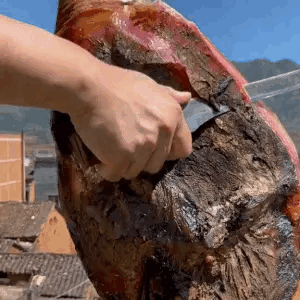



senshi stimboard
if you’re seeing this, then senshi wants you to take care of yourself and go eat some food <3
sources: 🧡🧡🤎 | 🥘🍲🥘 | 🤎🧡🧡
#senshi says the kind of food doesn’t matter bc all food is good food! just try to go have a snack rn! senshi will be very proud if u do :))#stimboard#senshi#senshi of izganda#dungeon meshi#delicious in dungeon#food stim#cooking#knives#sharps#tw raw meat#stim board#my boards#personal boards#food#brown#green#yellow#red#oughhh this is definitely one of my favorite boards I’ve made in a LONG time..#love that I was able to both make a senshi board (delightful) AND use it as an excuse to just fill a board with cozy food stims#man senshi is literally so important to me.. I love him….#I swear bro is literally the patron saint of ed recovery rn lmaooo#bless him <33 he is genuinely motivating me to eat. and to make boards again apparently!
552 notes
·
View notes
Note
Yknow those church halloween parties where all the kids go dressed up as saints. I'm imagining Xelqua going as. Xelqua. What can he say not much you gotta do to dress up as technically-you
ooooh All Saints’ Day, absolutelyyyy, Grian would make the little costume akdjdksk Xelqua would be SOOO happy

#Ask#kidxelqua#sketching#my art#grians gonna show Saint Xelqua the little pictures later like look. U.#Grian seeing little wings on Xelqua and immediately understanding why the Watchers doted on him
230 notes
·
View notes
Text
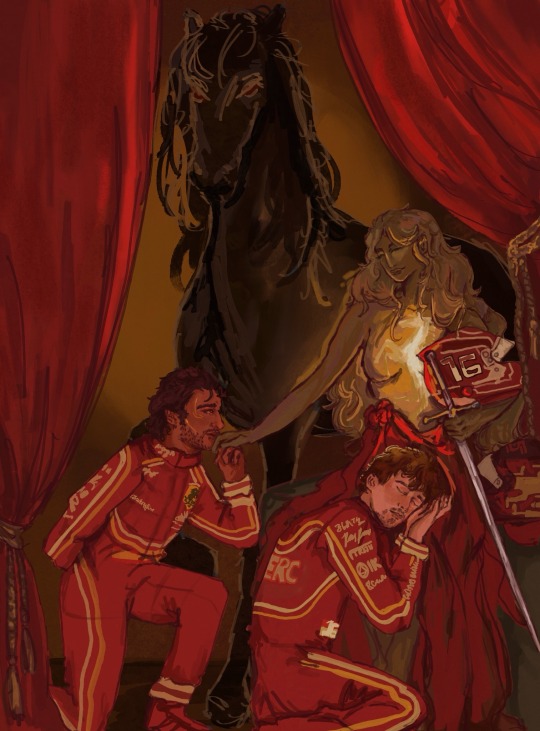
— Our Lady of Destiny
#the gallery#scuderia ferrari#saint ferrari#charles leclerc#carlos sainz#cl16#cs55#charlos#f1 fanart#formula 1#f1#hhngngng falls over and DIES this took. 5 hours and 13 minutes exactly#theres symbolism here if u look hard enough alright#if this flops i will cry#PLZE this is a . monumental labor of love from kacey strwbrryfire#anyways. this in celebration of my beautiful lambs' austin 1-2#a worthy cause of jubilation if u ask me
173 notes
·
View notes
Text
sonadow is genuinely a really good ship that makes a lot of sense if u let go of homophobia and "cringe" and just think about it.
they match each others dynamic SO well, very protective of one another, literal two sides of the same coin w direct parallel experiences, the fruity looks they give each other, shadow being the only one able to keep up w him even in super form, sonic being a lot like maria
"it'll never be canon" idk the vas and writers seem to like it🤷♀️ the takeovers and sonic prime is close enough to make us happy, plus if we're strict to canon nothing would be fun.
and why is everything titled sonic x shadow LMAOO- first the game then the takeover then the jp title.. they couldve used any other name or variation but no. SONIC X SHADOW take it or leave it (they're definitely aware)
sure ig ships and romance can be cringe sometimes but its for fun yk?? every single time i see someone post or mention sonadow as a ship some homophobe always goes in to ruin the fun like "theyre JUST rivals and friends nothing more do NOT ship them they are straight it'll never be canon" even making up shit to make it "problematic" like stfu omggg... i hate plenty of ships but commenting on others posts is so unnecessary just mute/block n move on??
why are you even there anyway? esp on youtube like bro clicked on a sonadow video posted by a channel named sonadow fan and get mad when u see sonadow what were u expecting😹
not just that but sonadow specifically gets way too much hate compared to anything else. the amount of posts ive seen like "worst things in the sonic fandom: *sonic just kissing shadow* *pedophilia* *weird asf fetish* *incest*" then everyone in the comments only dogpiles sonadow like r u fucking srs rn😭😭
#sonadow they could NEVER make me hate u#thankfully here i get positivity and support for my stuff#but ive been seeing wayyy too many hate spewing on my feed on ig and tiktok it pisses me offffff#so much to rant ab recent homophobia gimme a moment to collect my thoughts😞😞#to drown that negativity i will simply draw MORE gay hogs#v v thankful this is a space safe enough for me to be talking ab this#anyways im no saint and if u come to my turf to shit on them or any of my fruits i WILL drag u idc#homophobia#gay#lgbt#sonadow#shadonic#sonic x shadow#sonic the hedgehog#shadow the hedgehog
117 notes
·
View notes